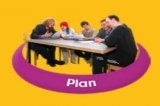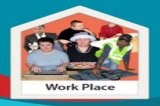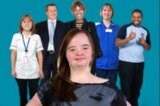Preparing for adult life
A guide for young people living in Kirklees
A guide for young people living in Kirklees

This guide is for young people aged 14 up to 25 years of age with special education needs and disabilities.

This guide will help you think about your future. It will explain how you will be supported as you become an adult. It will let you know about some of the decisions that you will need to make.

It’s important you start thinking about...
You should start talking to family and friends, its your life, have your say!

From 14 years of age - school year 9 you will be invited to some planning meetings to talk about:
Lots of people will say what they think you might
need. These people might be:
But the important thing is what you think.

If you are under 16 years old, your mum, dad or main carer will make decisions about your support.
You will still be asked what you think about your support. It’s important you think about what is important to you.

If you are 16 years old or older, you will be the main person making decisions. Support is available if you need it, this is called advocacy. Advocacy helps you make sure your views are heard. Find out more information about advocacy at www.kirklees.gov.uk/advocacy (opens link in new window)

Here are some things you might want to think about:

What you want to do when you leave school?

You can find information about all of these things on your local offer website www.kirklees.gov.uk/localoffer (opens link in new window)

You have to stay in some form of education or training until you are 18 years old.
This could be full time or just for one day per week while you are in a work placement.

If you choose to stay in education, your college will keep looking at the support they give you to make sure it is enough to help you to learn.
You might need different sorts of support at different times.
You may have an education, health and social care plan which records the help you need.

The people in charge of making sure you are getting the support you need are:

Visit or speak to the college to find out more information about how they can help you.

If you would like to get a job, there are a number of ways that you can be supported. Talk to your careers adviser about:
Contact C&K Careers on 01484 225500 or email enquiries@ckcareers.co.uk

Your local council and health can offer help and support to you depending on your needs. There are services for children (under 18) and services for adults (over 18).
You may need help with things like taking care of yourself, getting around on your own, managing your health needs, living on your own. Social workers can work with you to work out what your care and support needs are and whether you can receive money for support from the council.

Becoming an adult means that you will move from children’s to adults’ services. People who support you and know you will be in your planning meetings.
This move will happen over a period of time. In law you become an adult at 18, but changes will start taking place from 16

Social workers may also attend your planning meetings to help you move from children’s social care to adults’ social care.
They will work with you to assess your care and support needs and if you meet criteria set by the Care Act 2014 you will be offered a personal budget. You can choose how you take this:


Connect to support is a website that will help you see care and support services in Kirklees. www.connecttosupport.org/kirklees (opens link in new window)
If you don’t meet the Care Act criteria there are lots of community services. To find out more contact Community Health and Social Care (formerly known as Gateway to care) on 0300 304 5555 or visit the Community Directory at www.kirklees.gov.uk/communitydirectory (opens link in new window)

You can find your local offer at www.kirklees.gov.uk/localoffer (opens link in new window)
Connect to support will help you see care and support services in Kirklees www. connecttosupport.org/kirklees (opens link in new window)
If you do not have access to the internet, you can ask your local council for information that is written down. Contact Community Health and Social Care on 0300 304 5555.

This information can be made available in languages other than English. It can also be made available in large print, audio CD and Braille. Full details are available by telephoning 01484 414933.